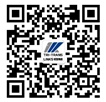KOREAN AIR cargo second quarter revenue fell 56 per cent year on year to US$748.8 million, indicating how a weak the Asian air freight market has become.
The recovery of travel demand boosted total revenue to $2.7 billion, but the cargo business was hit by increased capacity offered by the return of passenger aircraft belly hold post-Covid.
Cargo volume at Korean Air fell 18.8 per cent in the quarter year on year but was 15.6 per cent better than the same period in 2019. Load factors decreased 12.5 points to 70 per cent.
Air cargo demand has fallen seven per cent to 10 per cent since March 2022 as ocean supply chains recovered and the global economy slowed post Covid.
Conditions have marginally improved in recent months, but air freight demand remains about three per cent lower and shipping rates are 40 per cent to 50 per cent cheaper than a year ago.
Excluding fuel surcharges, rates are near where they were in 2019 in many trade corridors.
Management said it didn't anticipate improved results in the third quarter because of intensified competition and the drop in freight rates but that volumes could tick up as semiconductor companies deplete inventories and battery demand for electric vehicles picks up.
Transport of lithium batteries exceeds 10 per cent of Korean Air's total air cargo volume and this number is projected to grow with consumer demand for smartphones, handheld electronic devices and electric vehicles.
The airline plans to leverage new certification from the International Air Transport Association for excellence in handling lithium ion batteries to attract more business.
The cargo division is also working to improve margins by optimising connecting routes in response to changing demand patterns, adding a freighter destination in Zhengzhou, China, and increasing contracts for e-commerce.
In the previous:Four Nigerian stowaways survive 14 days atop a ship's rudder
The next article:Philippines air carriers cargo up 10pc more in first quarter year on year


